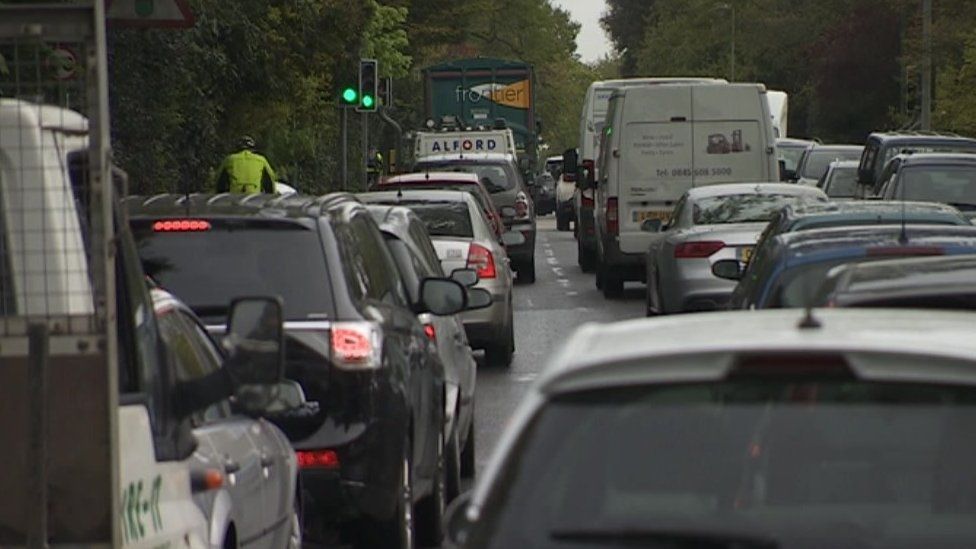Southampton clean air charges splits opinion
- Published

Plans for a pollution charge for vehicles entering Southampton have divided opinion, according to the results of a consultation.
The city council has proposed a clean air zone with vehicle charging to reduce nitrogen dioxide levels.
Of almost 10,000 responses to a public consultation, 56% agreed with the plan. Three quarters thought it would adversely affect small businesses.
Five English cities are preparing to introduce such zones by 2020.
In May, Southampton was named by the World Health Organization as being at the limit for levels of fine particle pollution.
A public consultation asked people about implementing a clean air zone, in which the highest polluting vehicles - including older lorries, buses and coaches - would be charged when they entered the city from 2019.
Some taxis could incur a daily charge of £12.50. Private cars, vans, minibuses and motorcycles would be exempt under the plans.
'Stealth tax'
While 75% of respondents felt that air quality in Southampton was a problem, 56% either agreed or strongly agreed with the council's proposal.
However 64% said it would have a negative economic impact on the port or city, with 75% saying they thought it would have a negative effect on small businesses and sole traders.
The survey also showed 78% said it would have positive impact on the city's environment and 77% agreed it would improve health.
Among the comments submitted, one branded the proposals a "stealth tax", while another said "a cleaner more sustainable city will attract investment".
Earlier this year Isle of Wight Council voiced concerns the plans would increase delivery charges for goods travelling to the island.
The city council is due to discuss its business case before submitting it to the government at the end of January. Neighbouring New Forest District Council is due to submit its proposals on 31 December.
Birmingham, Leeds, Nottingham and Derby are also considering vehicle charges in order to reduce nitrogen dioxide levels.
- Published7 September 2018
- Published27 June 2018
- Published4 May 2018
- Published6 March 2017
- Published6 March 2017